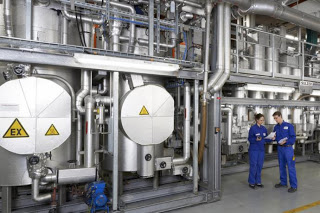Swiss engineering firm Sulzer has been awarded a contract for the delivery of a polylactic acid (PLA) production plant in Asia based on its proprietary technology. The facility will have more than 10,000 tons/year capacity and is expected to start in the second half of 2014.
Of course, the question here is where exactly in Asia it is going to be built and who is the company that will produce the PLA.
According to the Sulzer press release, the technology allows the continuous production of high-performance PLA grades with very low residual monomer levels and a wide possible viscosity range. The PLA to be produced will also have excellent crystallinity and can withstand temperatures as high as 180 degree Celsius.
Sulzer started last year its own PLA 1,000 tons/year pilot plant in Switzerland, which is used for customer testing.
According to a recent biopolymers study from Germany-based nova-Institut, 25 companies are currently producing PLA with more than 180,000 tonnes/year capacity at 30 sites worldwide. NatureWorks is currently the largest producer with a capacity of 150,000 tons/year in Blair, Nebraska, USA.
NatureWorks, by the way, recently increased its capacity from 140,000 tons/year by installing a proprietary equipment developed by Sulzer. The company is also considering building its second 150,000 tons/year plant in Asia (location still being discussed but the vote was reportedly between Malaysia or Thailand).
Other producers, according to nova-Institut, have current capacity of between 1,500 and 10,000 tons/year. According to the report, the forecast for PLA capacity is to reach around 800,000 tons/year by 2020, with at least seven sites having a capacity of over 50,000 tons/year by that year.
Another PLA-related news that the blog came across recently is about a Russian industrial biotechnology company called PoliKompleks, which is planning to invest EUR30m ($39.5m) to construct a PLA-based plastic facility in Kaliningrad with a capacity of 50,000 tons/year. The site will also have a facility that will produce biodegradable de-icing reagents with a capacity of 12,000 tons/year.
The project is expected to be completed by 2016. According to the article from European Plastics News, the project involves Germany-based electronic monitoring instrument producer Sarad, which signed the project with PoliKompleks at a recent industrial technology fair Hannover Messe.
FOLLOW ME ON THESE SPACE
Discussion
Comments are closed.